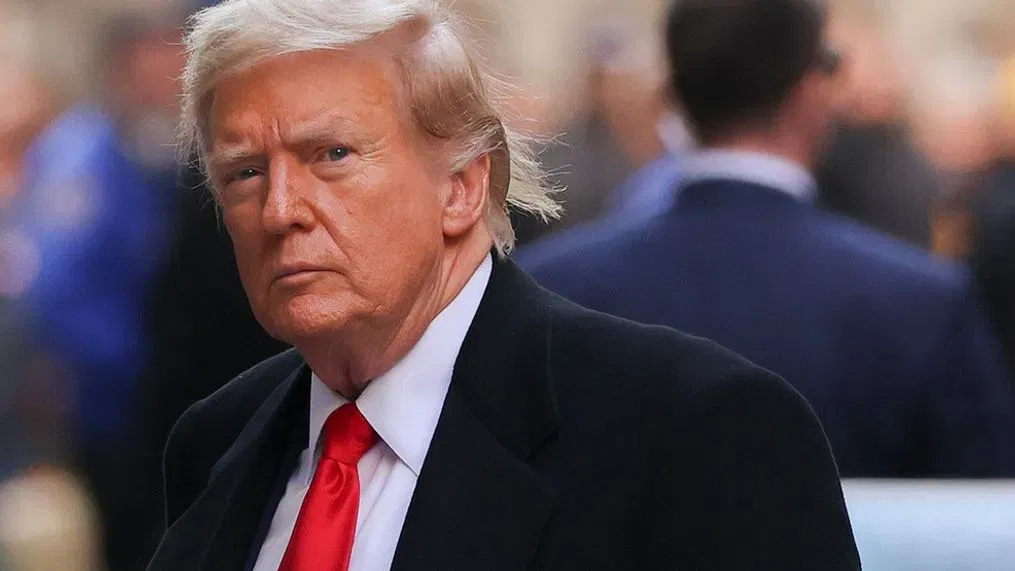Inside the ABBA-Trump Dispute: Why the Band Wants Their Songs Off His Playlist
ABBA-Trump Dispute: In the world of music and politics, the intersection of art and public affairs often leads to controversial moments. One such incident that grabbed headlines was when the legendary pop group ABBA told former President Donald Trump to stop playing their songs at his political events. This dispute, involving the use of ABBA’s iconic music at Trump rallies, has sparked discussions about the rights of artists, the ethics of music usage in political campaigns, and the broader implications for the music industry.
The ABBA-Trump Song Dispute: What Happened?
ABBA Tells Trump to Stop Using Their Songs
In 2018, ABBA’s management issued a cease-and-desist letter to Donald Trump’s campaign, demanding that he stop playing their songs at his rallies. The issue came to a head when “Dancing Queen,” one of ABBA’s most famous hits, was played at a Trump rally in the United States. This use of ABBA’s music without permission was not an isolated incident; it was part of a larger trend where artists’ songs were being used at political events without their consent.
The band’s legal team emphasized that ABBA had not granted permission for their music to be used in any political context and that the band did not want to be associated with any political message, especially those promoted by Trump’s campaign. This move by ABBA was not just about controlling the use of their intellectual property; it was also a clear statement about the importance of artistic integrity and the rights of creators.
Legal and Ethical Implications
The ABBA Trump song dispute raises significant questions about the legal and ethical implications of using music in political campaigns. Under U.S. copyright law, playing a song in a public setting like a political rally typically requires a license from the copyright holder. However, many politicians rely on blanket licenses obtained by venues or event organizers, which can sometimes lead to conflicts if the artist disagrees with the political use of their work.
In ABBA’s case, their strong opposition to their music being used at Trump’s rallies highlights the ethical dimension of this issue. For many artists, their music is not just a product but a reflection of their personal values and beliefs. When that music is used in a way that contradicts those values, it can feel like a violation of their artistic integrity.
Trump’s Use of ABBA Music: A Closer Look
Why Trump Chose ABBA’s Music
The decision to use ABBA’s music at Trump rallies may have been influenced by the upbeat and universally recognized nature of their songs. Tracks like “Dancing Queen” and “Mamma Mia” are not just popular; they are anthems that resonate with a broad audience. However, this widespread appeal also means that the songs carry significant cultural weight, making their use in a political context particularly impactful—and, in some cases, controversial.
For Trump, who is known for crafting events that are as much about spectacle as they are about substance, the choice of ABBA’s music likely aimed to create a lively and engaging atmosphere. However, the backlash from the band shows that even well-intentioned choices can lead to unexpected consequences.
ABBA’s Legal Action Against Trump
In response to Trump’s continued use of their music, ABBA’s management took the step of sending a cease-and-desist letter, a legal action designed to formally demand that the unauthorized use stop. The Trump ABBA cease and desist case is not unique—many other artists have taken similar actions against political figures over the years, including The Rolling Stones, Bruce Springsteen, and Rihanna.
This legal action by ABBA underscores the importance of respecting intellectual property rights, even in the context of political events. While the laws around public performance rights can be complex, the underlying principle is clear: artists should have control over how their work is used and the message it conveys.
The Broader Impact on Music in Political Campaigns
The Role of Music in Political Rallies
Music has always played a critical role in shaping the atmosphere of political rallies. The right song can energize a crowd, convey a message, and create a memorable experience. However, the use of ABBA music at Trump rallies without the band’s consent has brought attention to the need for ethical considerations in music selection for political events.
In many cases, the choice of music can be as much about symbolism as it is about entertainment. Songs like ABBA’s “Dancing Queen” are instantly recognizable and evoke specific emotions and memories. When these songs are used in a political context, they can take on new meanings—meanings that the original artists may not endorse.
Industry Reactions to ABBA’s Stand
ABBA’s decision to take a stand against the unauthorized use of their music reflects a growing trend in the music industry. More and more artists are speaking out against the use of their work in political campaigns, particularly when those campaigns do not align with their values. This shift highlights a broader movement within the industry to assert the rights of creators and ensure that their work is used in a way that aligns with their intentions.
The Trump music controversy with ABBA has also prompted discussions within the industry about the need for clearer guidelines and stronger protections for artists. Some have called for more stringent licensing agreements, while others advocate for greater transparency in how music is used in public events.
The Future of Music in Politics: Lessons from the ABBA-Trump Dispute
Artists Asserting Their Rights
The ABBA legal action against Trump is part of a larger pattern where artists are increasingly asserting their rights in the face of unauthorized use. This trend is likely to continue, with more artists taking legal action or speaking out against the use of their music in contexts they do not support. As a result, political campaigns may need to be more cautious in their selection of music, ensuring that they have the necessary permissions and that their choices align with the artists’ values.
The Importance of Ethical Considerations
Beyond the legal aspects, the ABBA Trump song dispute underscores the importance of ethical considerations in music usage. Artists create music as an expression of their beliefs, experiences, and values, and when that music is used in a way that contradicts those values, it can feel like a betrayal. For political campaigns, being mindful of these ethical considerations is not just about avoiding legal trouble; it’s about respecting the work and legacy of the artists.
What This Means for Future Campaigns
The lessons from the ABBA-Trump dispute are clear: political campaigns need to be more thoughtful and respectful in their use of music. This means obtaining the proper licenses, considering the message the music conveys, and being prepared to face backlash if the artist does not approve of the usage. As artists continue to assert their rights, the intersection of music and politics will likely become an area of greater scrutiny and regulation.
The Lasting Impact of ABBA’s Stand
The ABBA Trump song dispute is more than just a disagreement over the use of music—it’s a reflection of the broader challenges and responsibilities that come with using art in the political arena. As ABBA told Trump to stop playing their songs at his events, they set a precedent for other artists to follow, asserting their rights and protecting their artistic integrity.
For future political campaigns, the key takeaway is clear: the music you choose matters, not just legally but ethically. By respecting the rights and wishes of artists, campaigns can avoid controversy and ensure that their events reflect the values and messages they intend to convey.
For more insights into the intersection of music, politics, and culture, visit Regent Studies.
External References:
For more on this topic, you can read the original coverage on BBC News.




